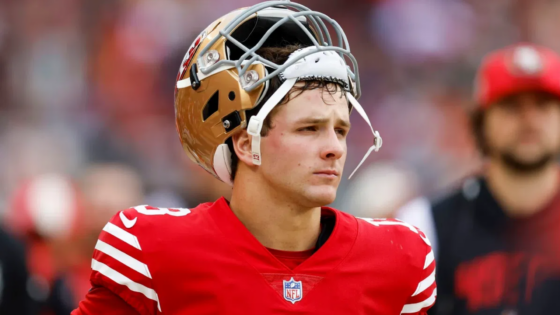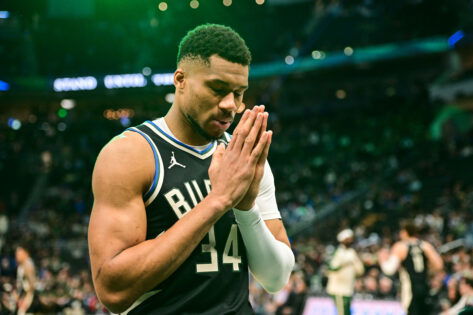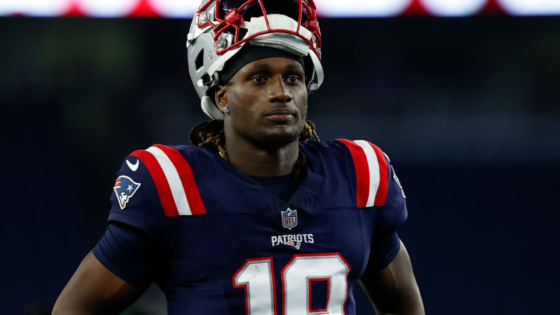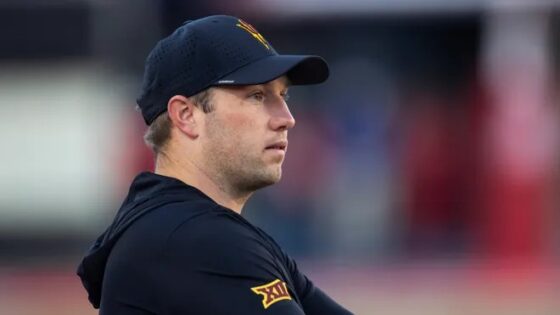Remember when Myles Garrett asked for a trade from the Browns earlier this year? Most people thought it was a done deal. The guy looked frustrated, tired of the ups and downs, and just ready for a fresh start. But then—plot twist—he stayed. Why? Oh, just a record-breaking $204.7 million extension that made him the highest-paid non-QB in NFL history. That kind of money has a funny way of changing minds. Garrett’s move showed us something simple: sometimes, the right paycheck can fix a whole lot of problems.
Now picture that same kind of drama… but in college football. And this time, it doesn’t end with a fat extension and a happy reunion. Tennessee’s Nico Iamaleava, once hyped as a future superstar, shook things up when he reportedly asked to bump his NIL deal from $2.4 million to a massive $4 million a year. Imagine being in college and making $4 million a year. It’d be a dream come true for most of us, for sure.
The whole thing started after Nico’s NIL deal fell through. Instead of showing up for practice, he ghosted. Days later, he hit the transfer portal—and just like that, one of the top QBs in college football was out the door. But this isn’t just about one player chasing the bag of money. Nico’s move is turning heads for what it says about the state of college football and how NIL deals are flipping the game on its head. Tennessee’s head coach Josh Heupel also chimed in during a Vol Network broadcast, basically saying no one—not even a star QB—is bigger than the program. “It’s the state of college football. At the end of the day, no one is ever bigger than the program. That includes me, too.” The message is loud and clear: this team isn’t playing the diva game.
And now? Nico Iamaleava was supposed to be the guy at Tennessee. A five-star recruit with a record-breaking $8 million NIL deal when he first signed? Yeah, expectations were sky-high. But this season, when he pushed for a raise to $4 million a year, things went south, really fast. Tennessee said “nah,” and Nico walked away. In a post on X, former NFL QB Chase Daniel summed it up perfectly: “A 20-year-old college athlete making $2.4 million THIS year is unhappy & wants $4 million… What is college football coming to?” He wasn’t done, either. Daniel later called out the NCAA’s lack of control and said what a lot of fans were thinking: “You cannot have a quarterback hold your team hostage – the NCAA, you have to figure out some guidelines and some rails and some rules in this whole situation.”
Why Nico Iamaleava HAD to leave Tennessee https://t.co/P9ijNsRKmD pic.twitter.com/ucHI9ZtYBJ
— Chase Daniel (@ChaseDaniel) April 12, 2025
Now here’s the kicker: Brock Purdy, the 49ers’ starting QB and one of the NFL’s breakout stars, earned $5.3 million this year. That’s his total salary for the entire year. And he’s playing in the freaking Super Bowl. Meanwhile, Nico Iamaleava wanted $4 million for one year of college ball. Let that sink in. Purdy’s rookie deal averages just under $934K a year. The man has proven himself on the biggest stage, and yet 16 college athletes made more than him through NIL deals last year. That’s insane.
Nico’s not the only one cashing big checks, though. Colorado’s Shedeur Sanders is reportedly pulling in $4.7 million a year—more than a ton of actual NFL QBs. This shift is raising a huge question: has college football gone full-on semi-pro? And if so, where’s the regulation? People are not happy.
The 4$ million Nico Iamaleava fallout
People are angry, to say the very least. When Nico first landed his $8 million deal in 2022, it was game-changing. But fast forward to now, and that kind of money is raising major questions. Who’s advising these players? Are they ready for this level of business negotiation? A scouting expert didn’t hold back on X: “Iamaleava is getting really bad advice… he looked shaky in the Playoffs vs. Ohio State. Needs two more years, maybe at $2.4M per year.” Even a sports attorney called it out: “It’s antics like this that are accelerating us toward a college football CBA. Nico is only hurting the guys that come after him.”
The concern? If every young athlete starts demanding raises mid-season, how do programs keep any sense of order? Nico’s move has one fan saying, “Prime example Chase of the craziness.” While yet another voiced their unhappiness with Nico, “This kid is insane!! Unreal opinion of himself! Hopefully nobody signs him…” Load the bullets, it’s turning into the Wild West out here.
Even NFL star Micah Parsons didn’t hold back: “College football a joke now! Y’all might as well just make college into a semi-pro league! Actually hold players accountable to the contracts they sign!” Another person raised objections to the NCAA: “The pathetic and inept NCAA not enforcing rules is threatening to ruin College Football…So, we need a governing body to step in and enforce mutually agreed upon rules…it is really that simple,” The solution being tossed around? A collective bargaining agreement—just like the pros. Standard contracts, salary caps, maybe even a player union. Sounds wild, but at this rate, it might be the only way to keep things from spiraling.
Tennessee’s not wasting time. Their NIL collective is already on the hunt for Nico’s replacement. In today’s NIL era, you’ve got to be ready for anything, especially when star players can dip with zero warning. This whole situation is a wake-up call for programs across the country: get ahead of the chaos or get left behind. Notably, a post on X says, “Anybody that didn’t smell this was going to be a result of paying college players only fooled themselves. No way everybody didn’t see this coming. EVERYBODY. No way.”
Nico Iamaleava’s exit isn’t just drama—it’s a defining moment for college sports. NIL has cracked the door wide open for player empowerment, but it’s also brought a flood of complications. If colleges want to survive this new world, they’ve got to find the sweet spot between giving players the freedom to earn and keeping their teams grounded. Because when unproven college QBs are demanding more than Super Bowl starters? You know the system needs a serious reset.
Whether it’s through collective bargaining, tougher contracts, or NCAA reform, we’ll have to see how this thing pans out. But one thing’s clear: the game has changed—and it’s not going back.
The post Calls Mount Against College QB Demanding More Money Than Brock Purdy’s Salary With the 49ers appeared first on EssentiallySports.



